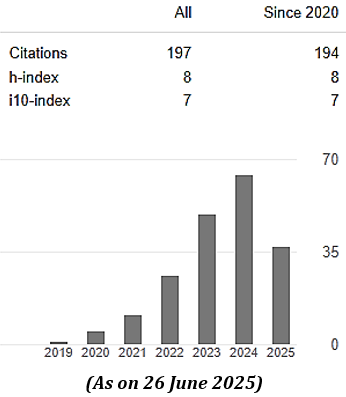AN ANALYSIS OF ALTERNATIVE INDUSTRIALIZATION STRATEGIES FOR DEVELOPING ECONOMIES
Abstract
Industrialization is the process of social and economic change whereby a human group is transformed from a preindustrial society into an industrial one. Import Substitution Industrialization (ISI) is an industrialization policy based on the premise that a country should attempt to reduce its foreign dependency through the local production of industrialized product s. Because of limitations of ISI, the concept of Export-led industrialization was supported by economists. Export-led industrialization (ELI) is an industrialization policy aiming to speed-up the industrialization process of a country through exporting goods for which the nation has a comparative advantage. Export-oriented industrialization is often contrasted with
import substitution industrialization. The objective of this paper is to critically appraise the role of Easy ISI strategy in economic development.
Downloads
References
G. M. Grossman and K. Rogoff (eds). Handbook of International Economics Vol. 3 (North-Holland, 1995)
Schmitz, H. (1984) „Industrialization Strategies in Less Developed Countries: Some Lessons of Historic Experience‟, Journal of Development Studies 21 (1): 1-21.
Stern, Nicholas. 1989. “The Economics of Development: A Survey.” Economic Journal 99(397): 597–685.
Weiss, J (1991), Industry in Developing Countries: Theory, Policy and Evidence, Routledge, London 1988.
MIJST follows the open access policy.

This work is licensed under a Creative Commons Attribution-NonCommercial 4.0 International License. This allows anyone to copy, share, distribute, and modify the work for non-commercial purposes, where the original work and source should be properly credited.
















